MONASH BUSINESS SCHOOL
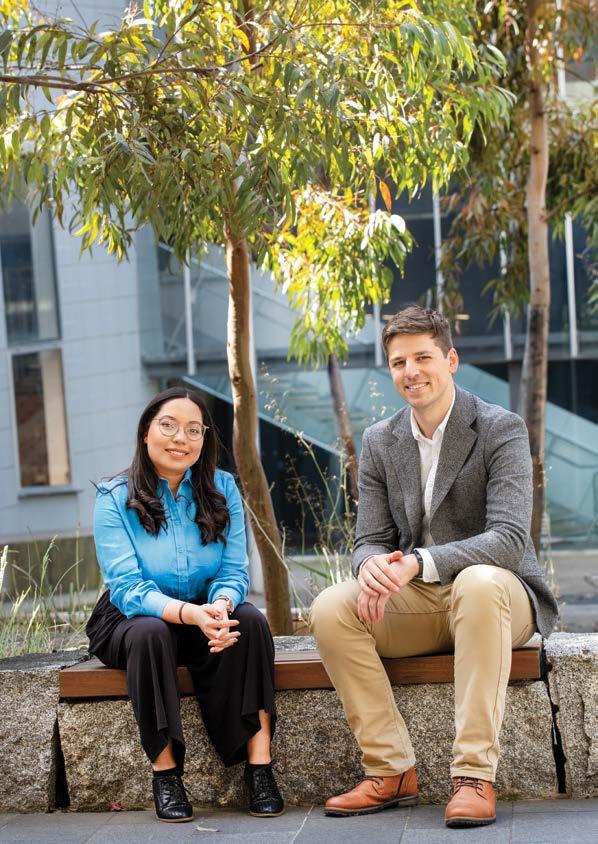


PhD candidates Michelle Escobar Carias and Andrew Ireland explore how climate change impacts our economic behaviour and workplaces. Read more on page 14.

Every institution is on a journey – it can’t be stationary and static, simply reiterating the same activities, with the same goals and aspirations.
Monash Business School is no different. We’ve been on a journey towards achieving our reputation for excellence in teaching and research – and we have hit those milestones, achieving some outstanding results.
In fact, despite the onerous restrictions of the global COVID pandemic, by all conventional metrics, last year was our best ever. We achieved both our highest level of student scores and our most productive research output, in quantity and quality of research. However, we’re not resting on our laurels. I am more excited looking forward to a change in strategy for the Business School, not retreating from what we already excel at, but in becoming a more engaged partner with government and industry, as part of solving the world’s complex and compelling problems.
This is a journey that we began internally in 2021. We’ve been putting the pieces together over the last year and we’ll unveil some of these soon.
In particular, we want to change how the government and business community view Monash Business School – and also Monash University – from that of a service provider of education or research to that of a trusted partner.
We want to leverage our expertise into helping solve the “Challenges of the Age.” In particular in the areas that Monash University has already identified through its Monash Impact 2030 strategy – climate change, geopolitical security and creating thriving communities.
The University is at a similar point in recognising that as we’ve attained the heights of being one of the top 50 universities in the world according to the QS World University Ranking 2022, we’re looking to get beyond the simple metrics.
This new engagement model for the Business School will be manifested in some of our future planned major strategic activities – notably the development of a globally significant partnership in the Pacific, called the
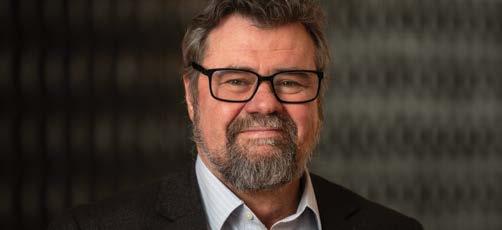
4 INFORM EDUCATIONAL OFFERING
1 ENGAGEMENT WITH BUSINESS AND GOVERNMENT
MUTUALLY BENEFICIAL
2 INSIGHTS
3 NEW RESEARCH IDEAS
Pacific Action on Climate Transitions (PACT); the planned launch of Impact Labs, a new way of looking at research; and the continued development of our engagement with industry. It’s also reflected in our updated Purpose and Vision statement, launched in 2021.
It’s a very exciting time for the business school.
The greater goal is that our research and education has the capability to improve the quality of life in Australia and the Pacific
To get to this point, we adopted the concept of the Virtuous Cycle. This is an acknowledged business concept that has been used successfully by start-ups and innovators around the world.
But we believe applying this concept may be a first in an Australian business school context.
The reasoning behind the Virtuous Cycle is that deeper engagement with business and government leads to greater insight into the pressing problems faced by industry and policymakers.
That, in turn, generates new research ideas, which then informs our educational offerings,
and drives greater engagement with industry and government, which benefit from the relevance of our high-quality graduates.
We’re delighted to be able to showcase the amazing work already being undertaken by our researchers and educators; research and partnerships that tackle issues like climate change in innovative ways; our accountability to global issues through the United Nations Sustainable Development Goals; student success and alumni career excellence.
Ultimately, the greater goal is that our research and education have the capability to dramatically improve the quality of life both in Australia and in the greater Pacific region.
From my own personal experience, when you have an opportunity to combine the thing that you are passionate about in research with the possibility of impacting the real world in a positive way that improves well-being, it’s tremendously satisfying.
It’s something we want the whole Business School community – staff, students, and alumni – to experience and to make this offer to a broader community.
Come join us on this journey.
Professor Simon Wilkie Head, Monash Business School Dean, Faculty of Business and EconomicsMonash Business School has unveiled a new and ambitious vision and purpose that reflects the scope of our intention.
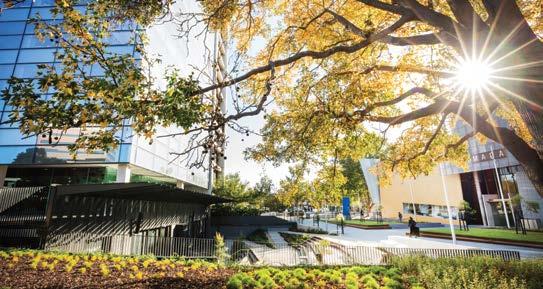
In a world of political turmoil, conflict and climate challenges, I believe our vision –‘To create a thriving, equitable and sustainable future for all’, carries with it a great sense of initiative.
Our purpose is: ‘Through inclusive business education and research, we develop leaders and empower communities to solve global economic, environmental and social challenges’.
As a world-leading business school, education and research is at the forefront of everything we do. We aim to provide the opportunity for everyone to be curious, learn, develop and thrive at every stage of their life.
Our underlying considerations were to reflect Monash Business School’s sustainable and inclusive goals; and to encompass our
partners, both internally across the University and externally with industry, government and the wider public.
We believe this is a far-reaching and distinctive statement, based on our values to always uphold human rights, social justice and respect for diversity for all members of society, and to champion the Principles for Responsible Management Education and progress the United Nations Sustainable Development Goals.
I hope you will join me in celebrating our renewed energy, expressed through our vision and purpose.
Professor Michelle Welsh Senior Deputy Dean, Faculty Operations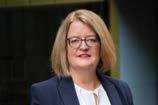
EQUIVALENT FULL-TIME STUDENT LOAD (EFTSL)
16,307
Undergraduate: 12,852 (79%)
Postgraduate: 3282 (20%)
Higher degrees by research: 166 (1%)
QS GLOBAL MBA RANKINGS FINANCIAL TIMES TOP 100 EXECUTIVE MBA RANKINGS
THE MONASH MBA
84 Global Ranking 2023
4
Oceania Ranking 2023
GLOBAL EXECUTIVE MBA
67 Global Ranking 2022
1
Australian Ranking 2022
GLOBAL ALUMNI
142,342
50% male / 50% female 36% living overseas 64% living in Australia
TIMES HIGHER EDUCATION RANKINGS BY SUBJECT
BUSINESS AND ECONOMICS
39
Global Ranking 2023
2
Australian Ranking 2023
US NEWS AND WORLD REPORT’S BEST GLOBAL UNIVERSITIES RANKING BY SUBJECT
ECONOMICS AND BUSINESS
17
Global Ranking 2022
1
Australian Ranking 2022
EDITORSHIPS
90 academic staff hold a range of editorial roles across 173 academic journals, including 9 of the most prestigious journals in the fields of Business, Economics and Business Law and Taxation.
EXCELLENCE IN RESEARCH FOR AUSTRALIA (ERA)
Rated Five Stars (well above world standard) for Economic Theory, Applied Economics, Econometrics, Marketing
SHANGHAI GLOBAL RANKINGS OF ACADEMIC SUBJECTS (GRAS)
BUSINESS ADMINISTRATION
35
Global Ranking 2022
1
Australian Ranking 2022
ECONOMICS
41
Global Ranking 2022
1
Australian Ranking 2022
Monash Business School’s global and national rankings reflect our enduring commitment to world-leading research and education.
In the US News and World Report’s Best Global Universities Rankings for 2023 we have climbed 9 places to be ranked 17th globally for Economics and Business.
In the Times Higher Education World University Rankings 2023 we have climbed 14 places to be ranked 39th globally for Business and Economics.
ACCOUNTING AND FINANCE
36 Global Ranking 2023
4
Australian Ranking 2023 BUSINESS ADMINISTRATION
QS WORLD UNIVERSITY RANKINGS BY SUBJECT
BUSINESS AND MANAGEMENT STUDIES
54
Global Ranking 2023
3
Australian Ranking 2023
ECONOMICS AND ECONOMETRICS
34
Global Ranking 2023
1
Australian Ranking 2023
ACADEMIC RANKING OF WORLD UNIVERSITIES (ARWU) BY SUBJECT
ECONOMICS
35 Global Ranking 2022
1 Australian Ranking 2022
41 Global Ranking 2022
1
Australian Ranking 2022
FINANCE
44
Global Ranking 2022
4
Australian Ranking 2022
ASSOCIATION OF ASIAPACIFIC BUSINESS SCHOOLS
Working to advance the quality of teaching and research in business schools in the APAC region.
PARTNERSHIPS
QUANTITATIVE TECHNIQUES FOR ECONOMICS AND MANAGEMENT
Developing skills in analytical and quantitative techniques for decision-making in an international context.
GLOBAL BUSINESS SCHOOL NETWORK
Improving access to quality, locally relevant management education for the developing world.
GLOBALLY RESPONSIBLE LEADERSHIP INITIATIVE
A global community creating awareness of the need for responsible leadership and collaborating with business on ethics, responsibility and sustainability.
BETA ALPHA PSI ASSOCIATION
International honour organisation providing recognition to high achieving accounting and finance students and professionals.

A transformational leadership program delivered by Monash Business School is strengthening Australia’s Indigenous workforce in the public, private and community sectors.
“This program is an example of what is possible when a relationship is forged between Aboriginal and Torres Strait Islander peoples and non-Indigenous Australians based on justice, equity, and the proper recognition of Aboriginal and Torres Strait Islander peoples’ rights,” says Gooreng Gooreng woman and Senior Lecturer Katrina Johnson.
She has been instrumental to the launch of the Master of Indigenous Business Leadership which is a cross-disciplinary program with leading units delivered by Monash Business School, complemented by a tailored offering in design thinking, together with a mastery unit from Law.
Ms Johnson speaks of her continued pride in teaching the program to indigenous leaders from all over Australia.
“It is a trailblazing program empowering our business leaders across the nation to Get Up! Stand Up! Show Up! in the boardroom, across community, in the marketplace and on global stages,” she says.
Ms Johnson understands the value of education. Her grandparents’ perseverance in ensuring their eight children were all educated, after only receiving limited schooling themselves, shaped her family for generations.
“I always return to the sacrifices made by my grandparents when I think about why I value education. Countless days toiling in the fields to earn money to send their eight children to school, knowing their sweat and labour would pave a way for their children’s children to have a better life,” she says.
A new climate change research centre will be established under a new partnership between the Fiji National University and Monash University, led by Monash Business School.
Pacific Action on Climate Transitions (PACT) will be a strategically important research centre that bridges a key gap between climate change science and business and economics research, leading to effective mitigation and adaptation policies.
Through collaboration and exceptional research, the centre will build capacity for policymakers in Pacific Island countries and globally.
Deepening Monash University’s engagement in the Pacific region has been the appointment of internationally respected human rights leader Rex Horoi as Monash University’s inaugural Climate Change Envoy for the Pacific.
“In my region, the visible and devastating effects of climate change are already occurring. The science is incontrovertible and Pacific Island countries such as Fiji have been very clear voices in the global debate,” Mr Horoi says.
“The inclusion of the business community and policy makers will be absolutely critical in tackling the huge challenges that now lie ahead of us.”
Professor Paresh Narayan has been helping to spearhead the initiative for Monash Business School.
“The centre’s aim is to create impactful research that will help implement better policies and improve the welfare of the people of Fiji and the Pacific nations,” says Professor Narayan.
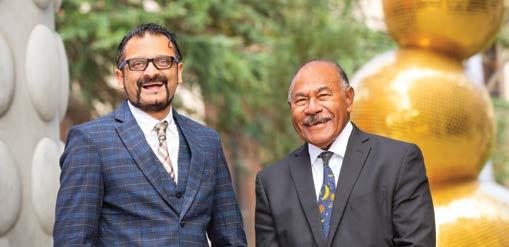
When it comes to sustainability, small changes can make a big difference, according to Monash Business School Future Global Leader postgraduate student, Shahjadi Anika.
Shahjadi’s goal is simple: to help businesses in developing nations like her birth country Bangladesh become more sustainable.
The Master of Advanced Finance student says her passion for positive change began while helping her father attract more global clients to his garment export business.
“I was doing my postgraduate studies and learning about the Environmental, Social, and Governance (ESG) criteria, and I thought it was the right time to look at doing things differently,” she says.
Working collaboratively with her father’s Bangladesh team, Shahjadi helped them introduce a range of sustainable practices such as Recycled Claim Standard (RCS) licensing and recycled poly packaging. These simple steps helped expand the international client base from 40 to 60 per cent, leading to increased sales and profitability.
Shahjadi says the company’s growth is inspiring other local small businesses.
“We are focusing on creating a global movement towards these green steps, influencing companies from other developing countries,” she says.
Being named a Monash Business School future Global Leader has inspired her to work even harder to encourage small businesses to adopt greener practices.
Giving up her time to help others is nothing new to Gabrielle Terliatan, president of Beta Alpha Psi-Xi Epsilon (BAP) Monash.
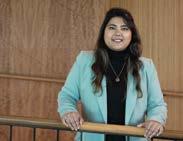
Since emigrating to Melbourne from Singapore as an 11-year old, Gabrielle’s passion for making a difference has seen her volunteer for a wide variety of charities.
When the opportunity to join the Monash Business School Discipline Panel and Dean Student Forum arose, she jumped at the chance to make a contribution.
“I wanted to make my opinions heard and provide a student perspective at hearings to ensure they were conducted accurately and fairly,” she says.
Gabrielle joined BAP Monash in 2020 and within a year became the group’s communications director and then president.
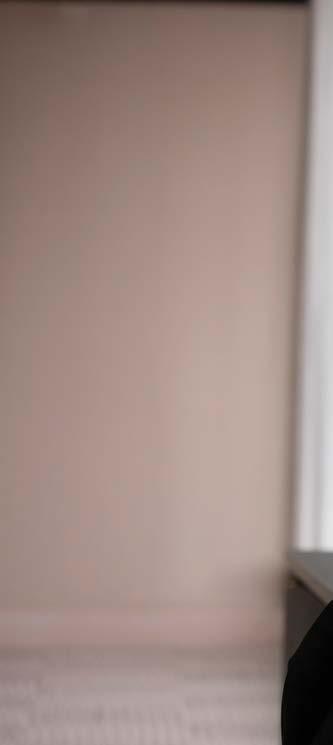
The resilient mindset Ms Terliatan developed during her early migrant experiences helped her deal with tough COVID-19 restrictions, but the support of BAP proved invaluable.
The Bachelor of Laws (Honours) and Commerce student says her proudest achievement to date is her work to help secure the prestigious Gold Challenge award for BAP at the annual Best Practices competition.
“These experiences have allowed me to understand what goes on behind the scenes at Monash Business School and the lengths required to assist the school in becoming as prestigious as it is now,”
Gabrielle continued to motivate and guide members to be responsible, progresive individuals through her leadership of BAP Monash in 2022.
“To be a pioneering, innovative and creative thinker is to show a keen interest in always wanting to transform and influence today’s society into a better one,” she says.
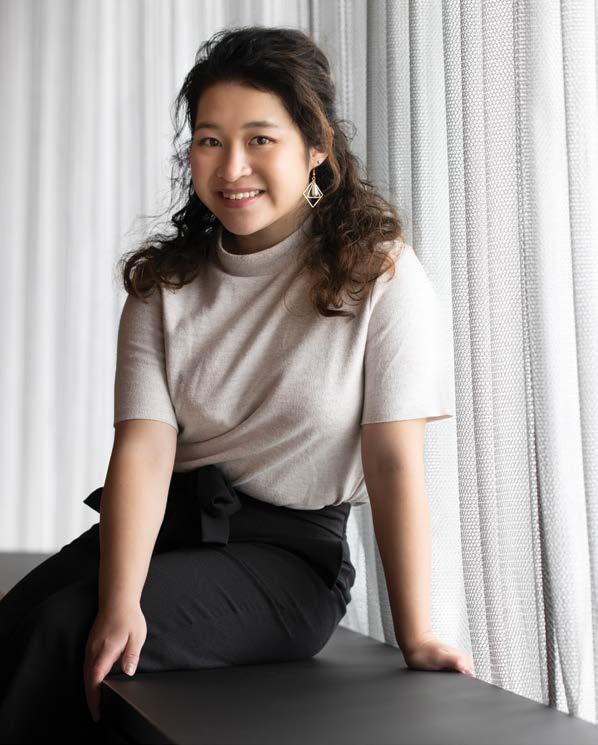
When it comes to numbers, Senior Lecturer Gerrie Roberts is proving greater student engagement equals better academic performance.
Department of Econometrics and Business Statistics Senior Lecturer Ms Roberts rejects the stereotype that you’re either a maths person or you’re not.
“For some, anything to do with numbers has previously involved a negative experience,” Ms Roberts says.
“The aim of my current work is to instil in students a belief that, despite much of the prior information received in their formative years with respect to maths, they are capable and can go on to become the brightest shining lights in their cohort.”
Ms Roberts uses technology to support an independent learning strategy she calls ‘Engage and Succeed’, which aims to not only make statistics accessible and relevant, but enjoyable as well.
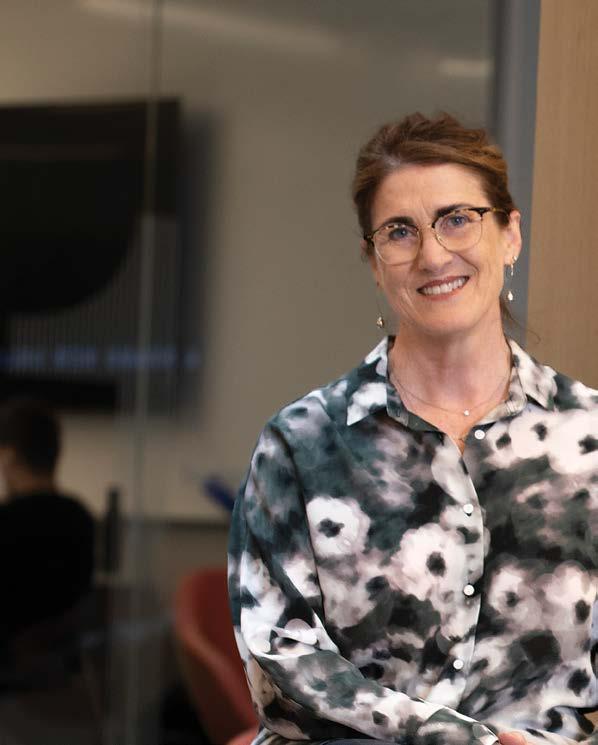
Her pre-class Moodle lessons and quizzes prime students ahead of interactive lectures, which incorporate in-class response technology to enable collaborative learning and feedback.
“Monitoring student responses with live performance analytics means I can pinpoint exactly where they are struggling and adjust the instruction accordingly, in real time,” she says.
“The early intervention and support are critical success factors in helping students engage and succeed.”
Ms Roberts says the focus on interactive teaching has enhanced the student experience and achieved substantial improvements in engagement and academic performance. Ms Roberts’ innovative teaching approach has gained recognition from colleagues, the university and the broader community, and she has been invited to present her findings at conferences and in journals.
Monash Business School students are taking on one of the most complex issues of our age – how nations can transition to sustainable energy.
The challenge is part of a world-first partnership between Monash Business School, the United Nations Economic and Social Commission for Asia and the Pacific (UNESCAP), research consultancy InceptLabs and the Institute of Public Accountants (IPA).
Monash Business School’s Course Director Professor Nicholas McGuigan says the multi-sector collaboration grew out of the need to respond to the global pandemic.
“We knew we had to find a new way to educate, something that would prepare our graduates for uncertain, rapidly changing, complex business environments,” he says.
Professor McGuigan joined Incept Labs chief executive Rob Kay and IPA Director of Education Philomena Leung to design a learning program never before attempted in a university context.
For the inaugural challenge, student teams tackled SDG 7: Energy Transition for the Asia-Pacific Region.
During the intensive ten-day program, multidisciplinary teams collaborated to undertake independent research, create stakeholder analyses, and find holistic solutions to the problem.
The Resilient Energy and Cybersecurity Technologies Toolkit (REACTT) – a knowledge toolbox to provide policy advice to governments on the risk management component of energy transformation - was named best overall solution by UNESCAP.
“Our solution ensures that even if a country experiences military, political or other turmoil, it will not affect its steady progress towards the relevant goals of the United Nations SDG7,” participating student Fan Wu says.
IPA Group CEO, Andrew Conway said the IPA was delighted to partner with Monash Business School and the UNESCAP.
“It is vitally important that we prepare our student founders for the reality of start-ups,” says Professor David Gilbert, founder and leader of Monash Business School’s Fastrack Start-up Program.
“Start-ups are now seen as a legitimate career pathway for students and COVID-19 has amplified the need for students to be switched on to the opportunities that an entrepreneurial mindset and the capabilities to execute, can bring.”
The Fastrack Start-up Program is the flagship program of the Entrepreneurship portfolio at Monash Business School. It is a two semester real-life experience that sees student founders launch a business with paying customers in just 24 weeks.
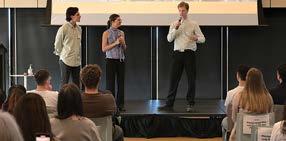
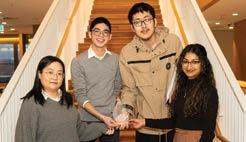
In 2022 Fastrack was offered for the first time across Monash University via competitive entry with over 1000 applications for 36 places in the program.
Eight different faculties were represented by this year’s cohort. It is an internationally recognised program supported by toptier companies and organisations from Australia, Silicon Valley and Israel. It is co-designed and co-delivered with industry partners from around the world.
“I am very proud of the transformation of students to outstanding professionals who can hold a seat at any table in the world and have a real impact,” he says.
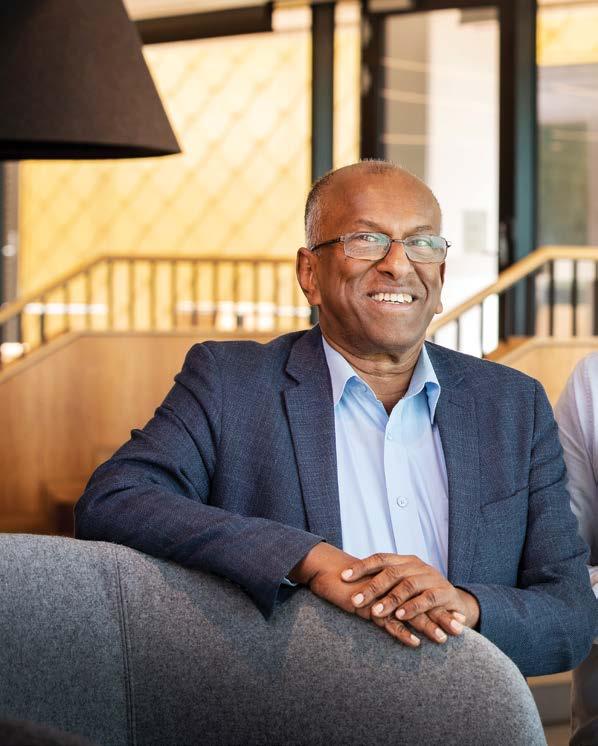
A groundbreaking new way of measuring and accrediting the unique value of member-owned businesses, devised by Monash Business School Accounting researchers Professor Matthew Hall and Dr Paul Thambar, is putting cooperatives and mutuals back in the limelight.
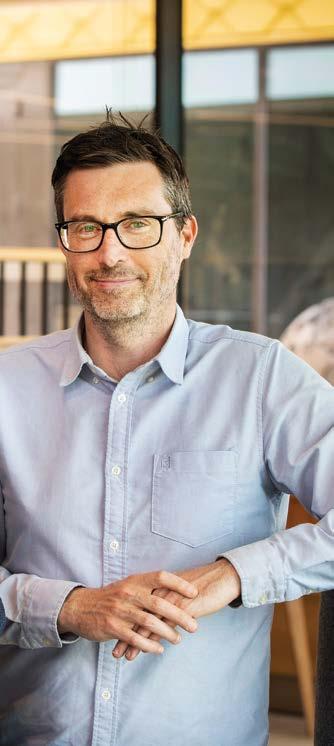
“The challenge for cooperatives and mutuals is that they can’t be understood through their profitability because maximising profits isn’t their purpose – their purpose is to maximise benefits to their members,” says Dr Thambar.
“In the last few decades competition from big corporations has grown. And now, when there is growing interest in new ‘purpose-driven’ organisations that invest profits in causes, the value of these original purpose-driven organisations isn’t being recognised.”
The sector itself is acutely aware of the problem, which is why the Business Council of Co-operatives and Mutuals (BCCM) engaged Monash researchers to help it develop a strategy.
The end result is a ground-breaking new framework called Mutual Value Measurement that co-operatives and mutuals can use to measure the whole value of what they do and communicate it to the broader community, including members, potential new members and financial markets.
The core of the framework are six key value drivers that the researchers found were common across an otherwise diverse sector of businesses.
About 30 organisations are now in the process of adopting the framework and the BCCM is hoping that more co-ops and mutuals will sign up.
Dr Thambar and Professor Hall are now running workshops on the frameworks, and with the BCCM they have developed and implemented an accreditation scheme.
With average temperatures rising rapidly, some places might soon be too hot for inhabitants to make optimal economic decisions.
Two research projects from Monash Business School’s Centre for Health Economics have revealed the far-reaching impacts of hot temperatures on everything from behaviour to workplace health and safety.
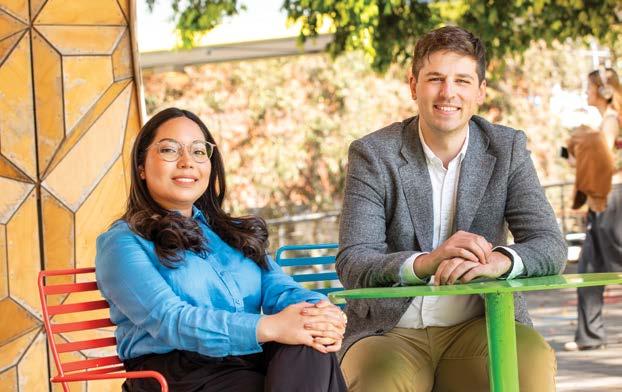
Heat increases the likelihood of irrational behaviour, attitudes towards risk, and decision-making capabilities, according to research by PhD candidate Michelle Escobar Carias from the Centre of Health Economics, together with Professor David Johnston, Dr Rohan Sweeney and Dr Rachel Knott.
The researchers have discovered that night-time temperatures above 22°C can lead to a significant increase in the probability of irrational behaviour and impatience.
“These economic preferences are fundamental for investment decisions, such as our propensity to save, open new businesses, and invest,” Ms Escobar says.
Another research project from the Centre for Health Economics using data from WorkSafe Victoria shows that high outdoor temperatures increase workplace injuries and accidents.
Manual workers – particularly those in outdoor industries – are most at risk. Research PhD candidate Andrew Ireland with Professor Johnston and Dr Knott found workers risk dehydration and heat stroke, but also a wide range of accidents due to attention lapses and environmental hazards.
Using over two million workplace injury claims submitted to Victoria’s mandatory workers’ compensation scheme from 1985 to 2020, the researchers found that higher temperatures generate significantly more claims.
As temperatures rise, industry and policy makers will be grappling with these sorts of issues in the near future.
By learning from past experiences, policymakers can improve the future for millions of modern day refugees.
For the Xiaokai Yang Chair of Business and Economics Professor Sascha Becker, the innovative use of historical data is central to his recent work on the ‘uprootedness’ hypothesis.
This is the idea that forced migration causes a shift in preferences toward investment in human, rather than physical, capital.
“The hypothesis is that people subjected to forced migration place a higher value on education, compared to people who have not gone through it,” Professor Becker says.
“If you lose your home due to war or disaster, you learn that no physical asset is ever safe –the only thing that cannot be taken from you is your education.”
This and other research has earned him a Monash Business School Dean’s Award for Excellence in Research.
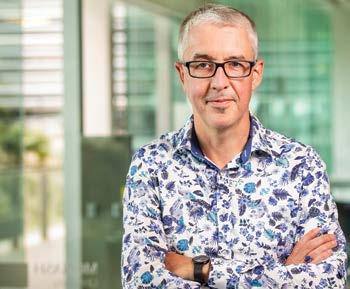
Professor Becker and his team tested their theory using the redrawing of Polish borders after WW2, when two million Polish people were forced to move from Kresy and resettle in territory taken from Germany.
This was a region in the eastern borderlands of Poland taken over by the then-USSR after the war.
Using historical censuses and newly collected data, the team’s research revealed substantially higher education levels in Polish people with a family history of forced migration than any comparison group.
The work has far-reaching implications for modern-day refugee issues.
“A policy recommendation emerging from our study is the proposal that governments in countries receiving forced migrants should foster refugees’ access to education,” he says.
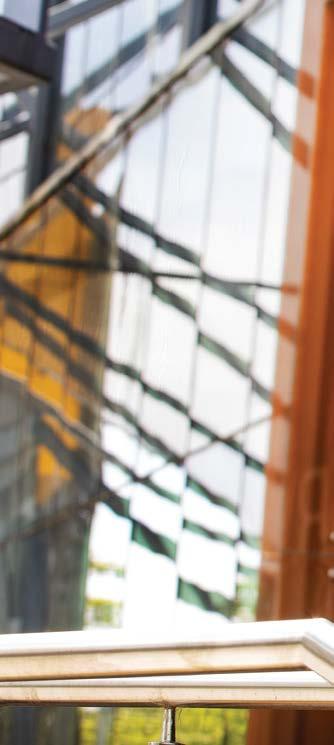
In the fast-moving digital channels, organisations need to understand and engage in customer conversations quickly and effectively.
The sheer volume and velocity of these online customer conversations are what makes digital marketing communications so critically different.
These simultaneously capture the current customer views and shape tomorrow’s customer choices. Organisations need to become smarter at monitoring what matters to customers, anticipating what customers will do next, and communicating with them.
Helping organisations achieve this is the exciting focus of Professor Stephan Ludwig’s research who joined the department of Marketing in 2022.
“What we say and how we say it, relays our perceptions, our relations, and determines our impact. Any conversation with a customer online is in the public eye of other customers and stakeholders,” he says.
“Organisations who want to do well, need to be able to reliably identify meaningful trends in their customers’ conversations and act on them effectively.”
Professor Ludwig studies communicational elements in big, unstructured data sets, including texts, images, and audio across social media sites, review sites, e-commerce platforms, and online freelance platforms.
His work offers evidence-based insights on the business performance implications of organisations and customers’ communicative choices.
He intends to bring these insights into the classroom by developing a new exciting Executive Education program at Monash Business School to upskill learners about online customer conversations.
“Online, organisations and customers do not first relate and then chat, they relate through chat,” he says.
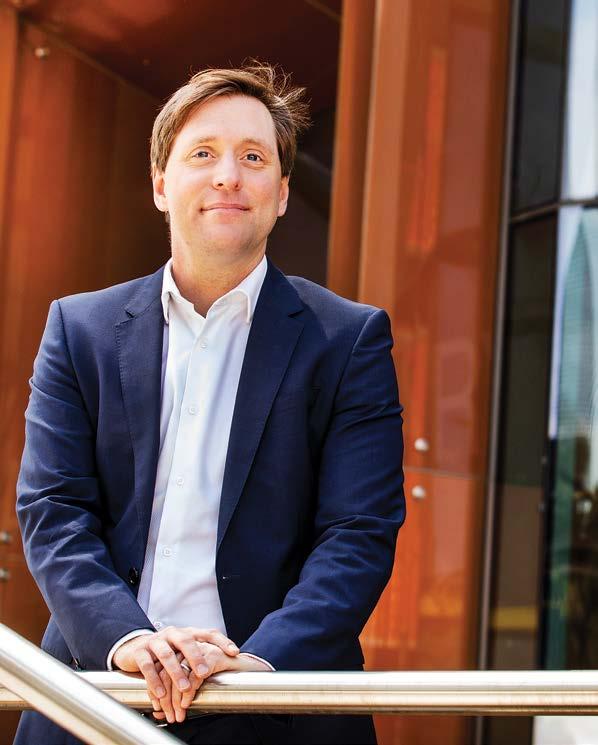
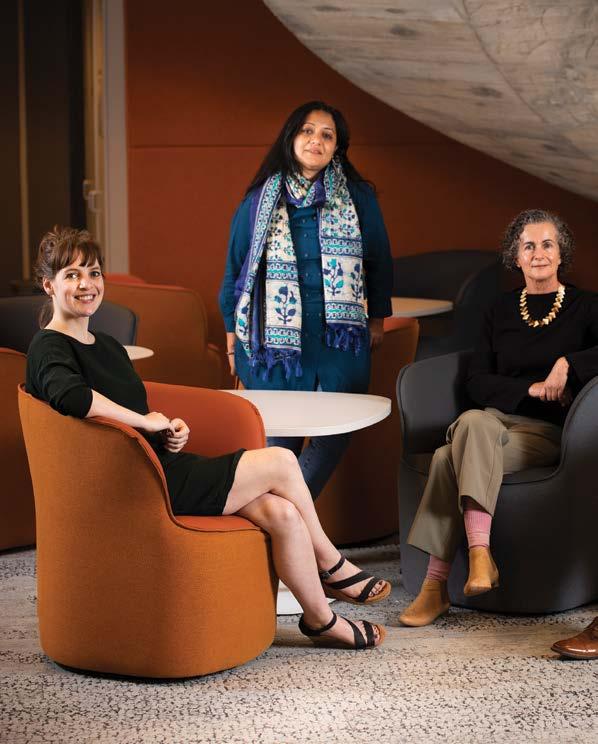
A passionate team of Monash Business School lecturers is challenging students to think beyond performance and growth as the only measures of business success.
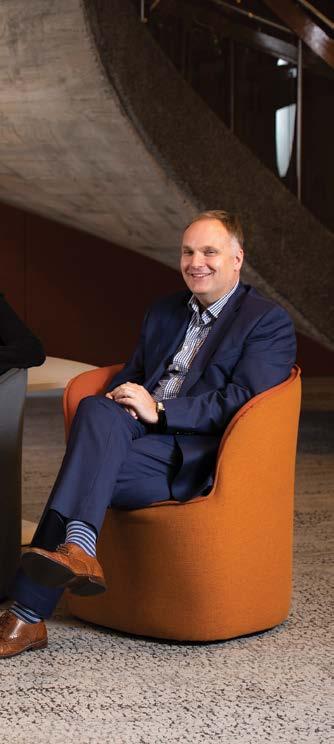
Dr Laura Visser and her colleagues Dr Fahreen Alamgir, Associate Professor Michelle Greenwood, Professor Gavin Jack, Dr Susan Mayson, Professor Kathleen Riach, and Professor Julie Wolfram Cox, share a common goal – to inspire students to appreciate the importance of responsible leadership.
“Performance and growth remain the primary focus of most management studies, but we know that focusing on these two things at the exclusion of wellbeing or the consideration of other outcomes creates a lot of issues - for example, environmental issues and issues of inequality,” Dr Visser says.
“We encourage our students to think beyond the normal assumptions of how organisations should operate, to consider the negative impact of these practices on people and the environment and to imagine radical alternatives.”
Dr Visser says their work exposes students to a range of alternative theories that explore the impact of organisational models on issues including gender, race, poverty, discrimination and the environment.
“Throughout our teaching there is an emphasis on ethical accountability,” she says.
“We ask them to think about how current management methods may not serve what we want to achieve, or what we argue could be achieved.”
The team’s approach aligns with Monash Business School’s commitment to the United Nations Sustainable Development Goals (SDGs), which underpin the Principles for Responsible Management Education (PRME).
They are inspired by a passion to shine a light on people who are marginalised or forgotten.
Monash Business School is working to achieve the United Nations Sustainable Development Goals across our education and research.
While the COVID-19 pandemic has posed significant challenges to all universities, it also provided many opportunities to reflect on our purpose and vision and set up a new strategic direction for the school.
Sustainable Development Goals (SDGs) are at the core of this new purpose-driven strategy. Our research across multiple SDGs remains a success, with a new research centre focused on climate change in the Pacific being established.
Our alignment with Monash University’s strategic plan, Impact 2030, ensures we will continue to make achievement against SDGs a key measure of our success.
Researchers from the Department of Accounting have undertaken a year-long field study to develop a social impact framework for a national charity.
Researchers from the Department of Econometrics and Business Statistics developed an algorithm for long-term electricity forecasting for the Australian Energy Market Operator.
Education and training delivered by the school improved cooperative efforts by farmers in Laos to control rodent populations, leading to reduced loss of rice crops.
8.
Launched in 2021, the Modern Slavery Disclosure (MSD) scoring framework is designed by the Monash Centre for Financial Studies (MCFS) as a benchmark for the disclosure quality of slavery reporting statements.
Working with BRAC, an NGO in Bangladesh, our researchers gathered the first experimental evidence on the mental health benefits of play for children and mothers living in Rohingya refugee camps.
9.
Researchers in the Centre for Development Economics and Sustainability use high-frequency and high spatial resolution data to track pollution along major highways linking two Chinese cities.
Our economists are utilising historical data to show the impact of forced migration on attitudes to education, and to help policy-makers better support refugee access to education.
The Department of Management’s research into autism employment practices has enabled a globally accessible research-based toolkit to support inclusive workspaces.
We have examined the impact of pollution from coal–fired power units on the anaemic status of children and women in India.
Our researchers established movement patterns for triton snails, using acoustic telemetry data, to better understand how snails contribute to conservation through starfish predation on the Great Barrier Reef.
As part of Monash University’s Fire to Flourish program, we research the impact of wildfires drawing on longitudinal subjective well-being data.
We teach about the importance of environmental, social and governance issues across our suite of undergraduate and graduate courses, including the bespoke Master of Regulation and Compliance.
We are researching retirement, wellbeing, and psychological outcomes for women.
Researchers developed a dynamic portfolio model of water consumption and supply, showing that people adopting water-saving behaviour when they know reservoirs are low would better allow governments to effectively manage risks to water resources.
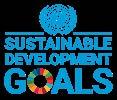
With her work driving more power to the victim, Associate Professor Dominique Allen’s handson approach to research is making Australian equality law more effective.
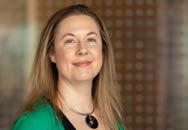
As Director of Monash Business School’s Labour, Equality and Human Rights research group within the Department of Business Law and Taxation, A/Professor Allen says Australian discrimination law is ineffective in achieving equality because it operates retrospectively and relies on the victim to take action.
“If a person is denied access to a building due to their disability, the courts may compensate that individual, but they are very unlikely to fix the bigger problem and order the business to make the building accessible,” she says.
of Marketing
Her wide-ranging research has tackled the enforcement of anti-discrimination law, the impact of COVID-19 on workers with family responsibilities, pregnancy discrimination in the workplace and the role of Alternative Dispute Resolution in resolving legal disputes.
Her latest research project focuses on women’s experiences using Victoria’s anti-discrimination laws, specifically around pregnancy and the workplace.
Dr Allen takes a hands-on approach to her research, interviewing lawyers, tribunal members and staff at statutory equality agencies about their experiences in dealing with these issues.
“I do this in order to gather evidence about how the law is working ‘on the ground’ so that the law reforms I propose are realistic and achievable,” she says.
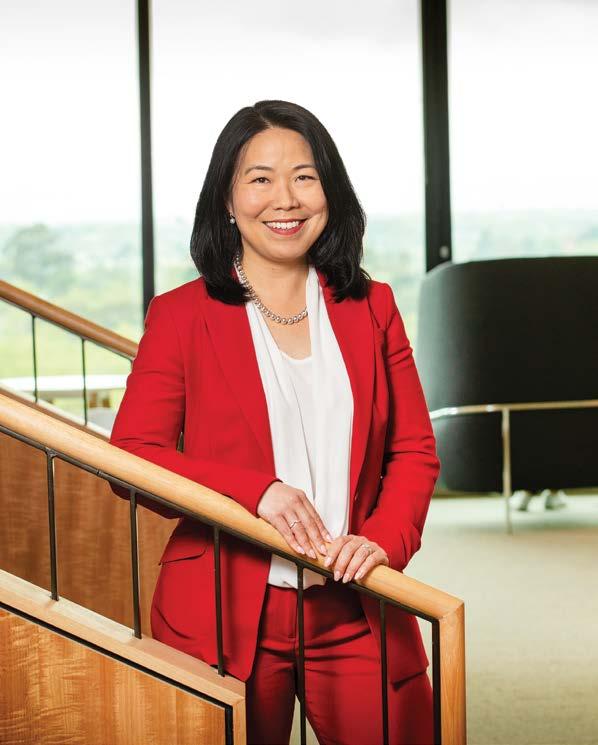
As the Head of Procurement for Nando’s Australia and New Zealand, Cynthia Chung’s role has taken her from chilli farms in Maputo, the tranquil city of Ahmedabad, to the bustling city of Guangzhou, Metropolitan Chicago and most recently to the kingdom of Eswatini (formerly known as Swaziland).

Her job is to source items unique to Nando’s, as well as the food and beverages you might typically think of in the restaurant industry.
“I have the privilege of working for a purpose-led business which is values-driven,” Cynthia says.
“Working with Nando’s has been an incredible journey so far. Nando’s purpose is Changing Lives Together.
“I’ve had the opportunity to work on the South African Sourcing Hub (SASH) initiative where we look to source items from Southern Africa. That creates employment for disadvantaged communities,” she says.
The Monash MBA equipped her with the skills to be able to see issues or opportunities from a holistic perspective.
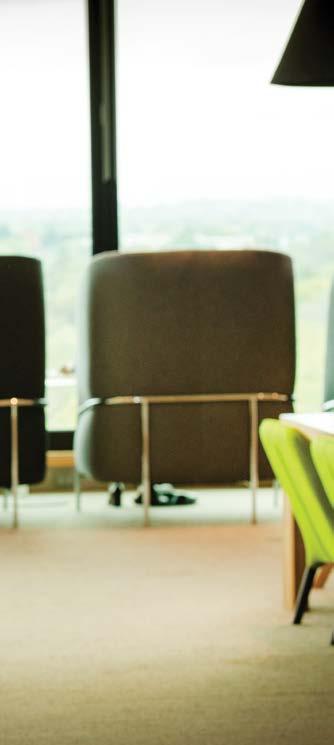
In 2019, she was part of the inaugural Monash MBA Alumni Executive Coaching Program, a 120-day program in partnership with IT solutions provider Cirrus. She also participates in the Monash Industry and Alumni Mentoring program.
“I am so excited to be able to contribute to the Monash community. Monash Alumni are widespread and far-reaching – there are so many opportunities for further collaboration which I have yet to tap into.
“I have continued to keep the friendship and connections of my classmates and it is wonderful to see them all do amazing things all over the world.”
With more than 25 years of HR experience across healthcare, life-sciences, education, consulting and the IT industry, Annie Lim thrives on creating workforce strategies that attract the best talent – with a big goal in mind.
She is currently Vice President, Human Resources with world-class biotech company Hummingbird Bioscience, a biotechnology company developing treatments for cancer and autoimmune disease.
“HR is a people business, it’s about manifesting relationships that help others grow, learn and build their careers,” she says.
“My passion for people drives me to create the right environment to foster opportunities for people to be successful and unleash their potential.”
She finished her Monash Bachelor of Business in 1998 and in 2021 she completed a Master of Counselling.
As a cross-functional HR partner to the Senior Management team, Annie oversees people and the organisation to lead end-to-end HR, driving talent management, employee engagement, recruitment practices and organisational development excellence that all lead to a highly motivated, productive and engaged workforce. Finding the right talented staff at the right time who are the right fit for Hummingbird Bioscience, gives her the ultimate high.
“To work for an organisation that is trying to find a cure for cancer empowers me to develop others to be successful,” she says.
“And to build a strong culture where diversity, inclusion, and belonging thrive.”
PROFESSOR SIMON WILKIE Head, Monash Business School Dean, Faculty of Business and Economics

PROFESSOR MICHAELA RANKIN Deputy Dean, International and Accreditation
PROFESSOR DEEP KAPUR Deputy Dean, External Engagement Director, Monash Centre for Financial Studies


PROFESSOR MICHELLE WELSH Senior Deputy Dean, Faculty Operations
PROFESSOR ROB BROOKS Deputy Dean, Education
PROFESSOR CARLA WILKIN Acting Deputy Dean, Leadership and Executive Education




PROFESSOR RICHARD HALL Deputy Dean, Leadership and Executive Education (on secondment)



PROFESSOR RUSSELL SMYTH Deputy Dean, Research Director, Impact Labs
DIRECTORS
ASSOCIATE PROFESSOR JOHN BEVACQUA Associate Dean, Learning and Teaching

PROFESSOR ALEX CHRISTOU Director, Strategic Partnerships MD, Thrive Global (APAC)






PROFESSOR PAUL COLLIER Director, MBA Program
PROFESSOR ASAD ISLAM Director, Centre for Development Economics and Sustainability
PROFESSOR CHARMINE HARTEL Associate Dean, Research Impact
ASSOCIATE PROFESSOR RALPH KOBER Associate Dean, Programs

PROFESSOR PATRICK BUTLER Director, Global Executive MBA Program

PROFESSOR DAVID GILBERT Director, Entrepreneurship
PROFESSOR ANTHONY HARRIS Director, Centre for Health Economics
PROFESSOR MATTHEW HALL Associate Dean, Graduate Research
ASSOCIATE PROFESSOR JONATHAN MATHENY Director, Program Development
DIRECTOR
PROFESSOR NICHOLAS M c GUIGAN Director, Equity Diversity and Social Inclusion



Accounting (appointment pending)
The largest business school in Australia, Monash Business School is structured into seven discipline-based departments, together with four research centres and a leadership and executive education group. It is also referred to as the Faculty of Business and Economics at Monash University.
The Faculty of Business and Economics includes the operations of the School of Business at Monash University Malaysia. The faculty also runs a range of specialist units and courses at Monash Suzhou in China, the Monash Prato Centre in Italy and Monash Indonesia in Jakarta.
PROFESSOR GEORGE ATHANASOPOULOS Econometrics and Business Statistics

PROFESSOR YULIA MERKOULOVA Banking and Finance
PROFESSOR CAROLYN SUTHERLAND Business Law and Taxation




MICHELLE CLARKE Faculty General Manager
PROFESSOR HEAN TAT KEH Marketing

PROFESSOR MICHAEL WARD Economics
PROFESSOR GAVIN JACK Management
Across all our leadership portfolios we look forward to an exciting future. With invigorated passion for education, research, and industry engagement, we hope to contribute to a better world, as outlined in our new purpose and vision.
At the heart of our goal of engaging more actively with business and industry and creating thriving communities is creating educational offerings that resonate with these aims.
That’s why we’re particularly proud of our Master of Indigenous Business Leadership (MoIBL) (page 6).
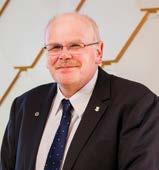
Such a program not only demonstrates our commitment to Monash University’s Impact 2030 strategic goals, but addresses a critical gap between Indigenous and non-Indigenous business leadership outcomes.
This program, developed with Monash University’s William Cooper Institute, is a transformational leadership program for Indigenous Australians designed to nurture the next generation of Indigenous leaders.
In 2022, MoIBL received the Australian Business Deans Council (ABDC) Award for Innovation and Excellence in Learning and Teaching. We believe there is a big future for this program.
As we look forward, we won’t forget the lessons learned in the past years. For instance, students being able to attend campus is not something we’ve been able to take for granted.
As more students return to face-to-face teaching and learning, feeling supported by staff and fellow students is an important predictor of student satisfaction and wellbeing. It continues to be our strong focus.
We are also excited to once again offer students numerous study options at our Italian campus in Prato and many opportunities to explore the world abroad, as well as welcoming international students back to Australian campuses.
The opportunity to travel is one vital part of helping students build their professional identities; industry experience is another. Our incredibly successful Work Integrated Learning program helps around 1000 students each year and the variety of placements continues to grow both domestically and internationally.
These are a few of the ways we demonstrate our dedication to providing a thriving, equitable and sustainable future.
It is crucial that the Business School provides a key response to the grand challenges of our time, including climate change, geopolitical challenges and creating thriving communities. We need to continue being innovative for the betterment of our community.
Monash Business School is justly proud of its diverse and high quality world-ranked research. The next step will be to build on our excellence and continue the School’s journey towards deeper engagement.
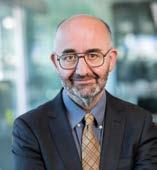
A future strategic priority will be the creation of five new Impact Labs, that amplify and strengthen partnerships with a range of industry and policy makers.
These five new Impact labs will lie within strategic areas of importance that correspond to our School’s new vision of creating a thriving, equitable and sustainable future for all.
The aim is for the highly research-intensive Business School to be at the forefront of engagement with industry and government. And to foster academic capability and
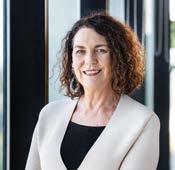 MICHAELA
MICHAELA
capacity to undertake impactful research.
The applied research Impact Labs will both generate and respond to external collaboration opportunities.
SoDaLab, with a focus on data analytics, is the first Impact Lab that is already up and running. It is followed by Opportunity Tech, which concentrates on social inclusion. Further Impact Labs to be developed in the near future are Digital Lab, which emphasises our strong research in the digital economy; the Energy Lab will engage in multidisciplinary research in the energy markets; and the Green Lab, will bring together our wide expertise in all areas of climate economics, finance and law. With Impact Labs we are reimagining our research networks to be at the forefront of research impact and industry engagement in core areas.
We always strive to develop and explore new ways to leverage current and future industry relationships. .
Monash Business School has always been committed to building the sorts of enduring global partnerships that enrich the educational and social experiences of our students.
While COVID-19 created the largest disruption to the education industry in history, it has allowed us to strengthen strategic partnerships which will provide new enterprising opportunities for our staff, alumni and students over the coming years.
With overseas travel reactivated, our domestic students can again experience the culture, education and industry engagement opportunities provided by a range of exchange and short-term study abroad opportunities.
This is in line with Monash University’s strategic goal of building the strength and scale of our international research and education programs.
Of note is the development of the Monash Global Campus Intensive program, which saw over 300 students studying at the University’s Prato Study Centre in Italy this year.
Alongside students from Warwick and Cornell universities, our students participate in a unit offered by Warwick Business School at its Venice centre, focusing on strategic luxury brand management.
We continue to strengthen our connections with key academic partners globally, leading to an increase in trans-national education partnerships from priority recruitment markets which aim to expand the diversity of our student body.
These partnerships will see students joining us after two years’ study at their home university. We have also been working with partner universities in Vietnam to present opportunities for their academics to complete a doctoral degree, funded by the Vietnamese Government. Finally, it has been wonderful to welcome our international students back to campus – their presence plays an enormous part in revitalising our campuses.
But we are also committed to providing an enriching educational experience for those students who need to continue to study remotely.
Students in Vietnam, Shanghai and Kuala Lumpur for instance, can engage with their peers at study hubs, hosted by Study Melbourne.
We believe we are well-positioned to continue our journey of engagement through international collaboration between students and academics across the globe.
Our Leadership and Executive Education portfolios are guided by Monash Business School’s vision to create a thriving, equitable and sustainable future for all.
We continue to deliver first-class innovative programs for executives, managers, and professionals, launch new online offerings and celebrate our MBAs achieving outstanding global rankings.
The excellent rankings for the Global Executive MBA which has entered the Financial Times Executive MBA Global Rankings for the first time speaks to our core value of recognising and rewarding excellence and leadership in education, research, and collaboration. It is ranked 1st in Australia and 67th in the world. We are thrilled about this result as it joins the Monash MBA in global top 100 rankings.
We are proud to build on this foundation when we develop and grow our Executive Education custom offerings. We delivered comprehensive leadership executive development programs for two major clients.
Women leaders from global energy company Engie completed our Women in Leadership executive development program.
Automobile parts supplier GPC Repco also undertook another customised leadership
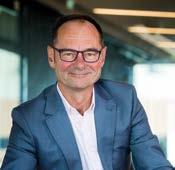
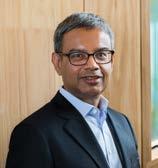
development program for their leaders from across Australia and New Zealand.
Another innovation is our new MBA Digital –a remarkable program delivered entirely online as part of Monash Online Education in conjunction with our partners, OES.
It is complementary to our Global Executive MBA and the Monash MBA, with its very own cutting-edge content. It has grown very strongly in its first year.
As part of Monash University’s global challenge to contribute to thriving communities, we continue to work in partnership with Thrive Global – founded by media entrepreneur Arianna Huffington, to address the burnout epidemic and support employee wellness and productivity.
We’ve been delighted to deliver these programs for Citibank to participants from 14 countries. Finally, we are proud of our world-leading selective entrepreneurial start-up program Fastrack which attracted students from eight faculties across the university.
The program has led to the creation of 12 innovative start-ups and is a tribute to several of the University’s goals of the highest international quality education and infusing our students with enterprising capabilities.
One of ways a modern business school can be judged is on its relevance to industry. This is not just through its contribution to a company’s profit and loss statement, but by developing tools that grapple with the social and policy framework that affects every business.
At Monash Business School, there are two flagship projects that reflect our approach to these issues.
Modern slavery is a very serious global issue that affects millions of people’s lives every year and sadly embedded in many business practices.
Since 2020 large companies operating in Australia are required to report on modern slavery risk in their operations and supply chains under the Australian Modern Slavery Act, one of the first of its’ kind in the world. Researchers at the Monash Centre for Financial Studies (MCFS) have developed a framework that ranks the modern slavery statements of the largest Australian companies. It has become a benchmark in the industry.
Individual companies, investors and activist groups are using the framework to monitor performance or put pressure on companies to improve, aligning with our core value of upholding human rights and social justice. Similarly, another strategic project involving Monash Centre for Financial Studies is contributing to the global challenge of climate change.
A new distribution agreement between business news giant Bloomberg disseminates accessible and reliable data via the Real Carbon Price Index to financial practitioners, media outlets, policy makers and others.
Developed in collaboration with MCFS and external partners, the Index is an essential tool to develop policy to reach target levels for a cost on carbon emissions to fight climate change. High demand from investors to access this information is both rewarding and satisfying.
These are important issues that transcend the usual boundaries between business and society. As we look to the future, we’ll continue to leverage our expertise.